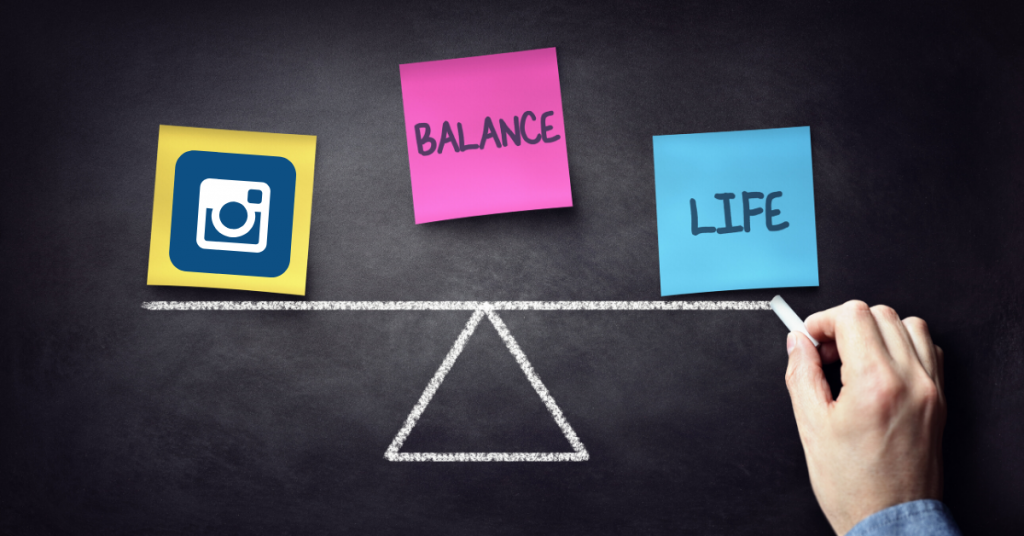The Impact of Social Media on Mental Health: Finding a Healthy Balance, Social media has become an integral part of modern life, offering numerous benefits such as staying connected with friends and family, sharing experiences, and accessing information. However, excessive use of social media can negatively impact mental health, leading to issues such as anxiety, depression, and low self-esteem. This guide explores the impact of social media on mental health and provides practical tips for finding a healthy balance.

1. Understanding the Impact of Social Media on Mental Health
Why It Matters: Recognizing how social media affects mental health can help you make informed choices about your online activities.
Positive Effects:
- Connectivity: Social media enables you to stay in touch with friends and family, regardless of geographical distances.
- Support Networks: Online communities provide support and understanding for people facing similar challenges or interests.
- Information and Awareness: Access to a wealth of information on various topics, including mental health resources.
Negative Effects:
- Comparison and Self-Esteem: Constant exposure to curated images and updates can lead to unhealthy comparisons, lowering self-esteem.
- Anxiety and Depression: Excessive use of social media is linked to increased levels of anxiety and depression, especially among young people.
- Sleep Disruption: Late-night social media use can interfere with sleep patterns, leading to sleep deprivation and its associated mental health issues.
- Cyberbullying: Negative interactions, such as cyberbullying and online harassment, can have severe emotional and psychological effects.
2. Recognizing Signs of Unhealthy Social Media Use
Why It Matters: Identifying the signs of unhealthy social media use can help you take proactive steps to address it.
Signs to Look For:
- Increased Anxiety: Feeling anxious or stressed after using social media.
- Negative Self-Perception: Comparing yourself unfavorably to others and feeling inadequate.
- Sleep Issues: Difficulty falling asleep or staying asleep due to late-night social media use.
- Neglecting Responsibilities: Spending excessive time on social media at the expense of work, school, or personal relationships.
- Mood Swings: Experiencing mood swings, irritability, or depression related to social media interactions.
3. Strategies for Finding a Healthy Balance
Why It Matters: Implementing healthy social media practices can enhance well-being and prevent negative mental health outcomes.
1. Set Time Limits
Why It Matters: Limiting time spent on social media can reduce its negative impact and free up time for other activities.
How to Do It:
- Use Built-In Tools: Many social media platforms and smartphones offer features to track and limit screen time.
- Schedule Breaks: Allocate specific times for social media use and take regular breaks throughout the day.
- Create Boundaries: Establish tech-free zones or times, such as during meals or before bed.
2. Curate Your Feed
Why It Matters: The content you consume can influence your mood and self-perception.
How to Do It:
- Follow Positive Accounts: Follow accounts that inspire, educate, and uplift you.
- Unfollow Negative Influences: Unfollow or mute accounts that cause stress, jealousy, or negativity.
- Engage Mindfully: Interact with content and communities that promote positive mental health and well-being.
3. Practice Mindfulness
Why It Matters: Mindfulness can help you become more aware of your social media habits and their impact on your mental health.
How to Do It:
- Be Present: Focus on being present in your offline life and fully engage in real-world interactions.
- Reflect on Usage: Regularly assess how social media use makes you feel and adjust your habits accordingly.
- Mindful Posting: Consider the intent and potential impact of your posts before sharing them.
4. Foster Real-Life Connections
Why It Matters: Building and maintaining real-life relationships can provide emotional support and a sense of belonging.
How to Do It:
- Prioritize Face-to-Face Interactions: Make time for in-person meetings with friends and family.
- Join Local Groups: Participate in local clubs, sports teams, or volunteer organizations to build community connections.
- Practice Active Listening: When interacting with others, listen actively and show genuine interest in their experiences.
5. Seek Professional Help
Why It Matters: Professional guidance can help you manage the negative effects of social media on your mental health.
How to Do It:
- Therapy: Consider speaking with a therapist or counselor if social media use is significantly impacting your mental health.
- Support Groups: Join support groups, either online or in person, to share experiences and coping strategies with others facing similar challenges.
- Educational Resources: Access educational resources on healthy social media use and mental health management.
4. Creating a Healthy Digital Environment
Why It Matters: A positive digital environment can enhance your overall well-being and reduce the risk of negative mental health effects.
How to Do It:
- Limit Notifications: Turn off non-essential notifications to reduce distractions and stress.
- Organize Your Digital Space: Keep your digital devices and accounts organized to minimize clutter and enhance focus.
- Digital Detox: Regularly take breaks from all digital devices to recharge and reconnect with the physical world.
5. Educating Yourself and Others
Why It Matters: Knowledge empowers you to make informed decisions and promote healthy social media habits within your community.
How to Do It:
- Stay Informed: Keep up-to-date with research and information on the impact of social media on mental health.
- Share Knowledge: Educate friends and family about the potential risks and benefits of social media use.
- Advocate for Change: Support initiatives and policies that promote digital well-being and mental health awareness.
Conclusion:
Social media can have both positive and negative effects on mental health. By recognizing the impact of social media on your well-being and implementing strategies to find a healthy balance, you can enjoy the benefits of online connectivity while minimizing potential risks. Set time limits, curate your feed, practice mindfulness, foster real-life connections, seek professional help when needed, create a healthy digital environment, and educate yourself and others. These steps can help you achieve a balanced approach to social media use, enhancing your overall mental health and well-being.
